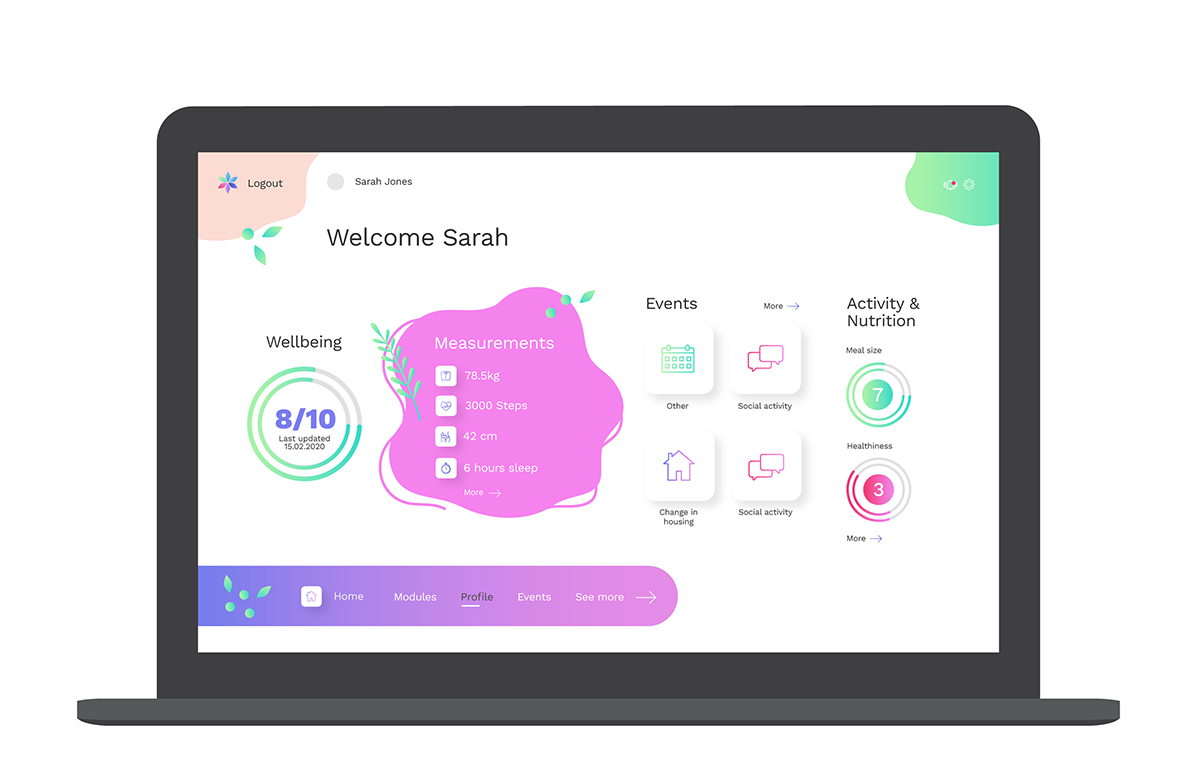
The adoption of technology in healthcare during the COVID-19 pandemic
by Steph HazlegreavesDr William Dawson, CEO of OneMedical Group – a national health and wellbeing company delivering NHS services, system leadership and consultancy across the UK – discusses the adoption of technology and opportunities in healthcare post COVID-19
The global COVID-19 pandemic has changed the world, affecting many of us on a personal level and devastating many lives and communities. Whilst it is a difficult thing to do when surrounded by such tragedy, as a company we have been working to see what positive learnings we can take forward to improve how we care for people in the future.
We’ve worked with our teams through the pandemic, with a focus on the safety of all our patients and employees, and what the past few months have taught us, is that through continuing to develop, learn and think differently, we can stride confidently into the unknown, safe in the knowledge that we will come out stronger as we continue to improve and grow. We are working to share our learning with the wider healthcare community to help drive positive change across primary and urgent care.
Underpinning this is a desire to help primary care thrive, to provide the best care for our communities, and be the best place to work in healthcare.
Since March, we have been working to deliver the immediate need for new models of care within primary and urgent care supported by digital health pathways. We have been working with primary care networks (PCNs) to lead transformation, provide training and workforce development through our collaboration and data insights teams.
LincUs Health and Wellbeing platform
Our product, LincUs – an online Health and Wellbeing, and Social Care Management digital platform – allows patients to monitor and take control of their health and wellbeing, whilst also enabling clinicians to monitor patient’s progress. The platform can be used as a stand-alone evaluation tool, or full care management system and can track and improve the health, wellbeing and performance of users and our team. LincUs provides real-time data, automated reports, self, and shared care support, and promotes positive behavioural change. The ‘Multiway’ video consultation platform within LincUs supports clinicians to consult with patients, in keeping with social distancing guidelines, as well as enabling them to work remotely.
For organisations and clinicians/care staff, it can be challenging to meet the care needs of service users efficiently. LincUs is an engagement tool that improves, monitors and records quality of service, whilst decreasing paperwork, allowing clinicians and carers to focus on care and providing an innovative solution for a range of problems within healthcare.
OneWellness community
We know the importance of good wellbeing for all our patients and team and have health and wellbeing hubs as a core part of our services. This focus on wellbeing became even more important for us when the pandemic hit.
To ensure all our staff had access to physical and psychological support, we converted many of our wellbeing initiatives to digital platforms, to ensure we could continue to support our teams. Additionally, we launched the OneWellness Community, providing a range of activities including mindfulness sessions, yoga, and exercise classes, as well and offering a forum of positivity and support open to everyone across the UK for free.
The future of digital healthcare
Digital Healthcare is here to stay; the pandemic has created a platform for change and digital pathways. There is an opportunity to truly transform and improve healthcare for the benefits of patients well beyond the pandemic, particularly for primary and urgent care. As professionals and clinicians, we can benefit from this too.
We know people rely on the need for physical appointments to maintain continuity and relationships. It is key to find a solution to maintain this, while also using technology in the most beneficial way to streamline the process and lessen the burden on healthcare professionals.
We are exploring a range of technologies such as smart surgeries with contactless logins and greater use of automations that can support patients to have a better experience of healthcare.
We think technology can help care for whole communities and support integration between commissioners and providers to make better-informed decisions about what services are needed. We have had success using population health data and insights to predict how we care for patients to improve outcomes.
Crucially, we need to use technology, such as LincUs, that give power to patients to understand and make decisions about their own health. We link people to clinicians and health protection agencies, so we can work together as equals to improve the health of the nation and end inequalities. Digital cannot do everything alone, and the unintended consequence of widening the health inequality gap is a very real risk if digital-first pathways cannot deliver care for everyone, particularly those most vulnerable. We are developing frictionless digital-physical healthcare models that offer the best health outcomes for all and are truly inclusive. How future technology and physical space is integrated will be key and depend on understanding how services are designed to be future proof; promote wellbeing for patients and staff whilst making sure they deliver a new level of infection control to be COVID-19 safe, and continue to provide a welcoming experience.
We feel we are taking the right steps and are continually innovating, collaborating, and adopting technology in the right format, for the optimum purpose, to ensure we can deliver a healthcare fit for the future.
Please note: This is a commercial profile
Contributor Profile

William Dawson
Chief Executive Officer
OneMedical Group
Phone: 0113 284 3158
Email: enquiries@onemedicalgroup.co.uk
Website: Visit Website
Facebook: Follow on Facebook
Twitter: Follow on Twitter